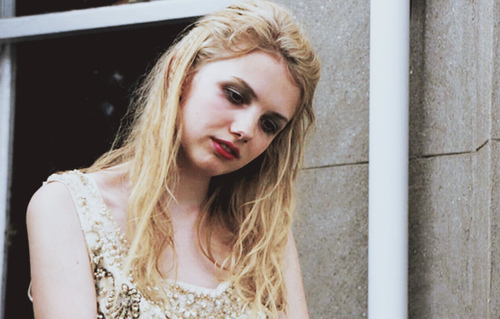As Becker mentioned yesterday, minority religions and how they’re depicted on television has owned my life for the past year, so it really interested me when Pat said that it seemed like Ofcom’s rules for religion seemed to specifically target Scientology and the like. Naturally, I decided to investigate.
After reading the Religion section of the code, it was interesting to see that “Religious programmes that contain claims that a living person (or group) has special powers […] must not broadcast such claims when significant numbers of children may be expected to be watching.” This is meant to protect the young, impressionable minds from fad religions, since “recognised religions and belief systems” like Christianity and Buddhism are okay.
This got me thinking: what exactly constitutes a “recognised” (they spell things so interestingly) religion? Here in the US, The Church of Scientology is a tax-exempt religious institution, but what about the UK? Turns out, it is completely the opposite.
Scientology began in the 1950s, when science fiction writer L. Ron Hubbard wrote Dianetics (basically the Scientology handbook), which started a craze for Hubbard’s new religion in both the US and the UK. While both countries’ governments were concerned about Scientology, the US eventually accepted it, but the British government was highly critical of it and its standard of ethics (which includes a condemnation of modern therapy or psychiatry) until the early 1970s. Scientology is still not considered an actual religion by the British government, which would leave it out of the “recognised” category.
Media outlets and journalists have been critical of the Church as well, with many authors writing exposés and critical literature about the Church. TV has been no different than print. ITV aired “Inside the Cult” and “The S Files” as episodes of its show Big Story in 1995 and 1996, respectively. In 1997, Channel 4 aired the similarly negative special called Secret Lives: L. Ron Hubbard, which our very own all-American Scientologist John Travolta tried to get pulled off the air. According to the producers, they were actually harrassed by the Church during the making of the episode (thesis plug: this whole thing is almost exactly like what happened when South Park went after Scientology). More recently, in 2007, “Scientology and Me” aired on the BBC show Panorama. John Sweeney, the journalist making the episode, recevied the same kind of stalking/harrassment that the Channel 4 producers did a decade earlier. In response to this episode, the Church released a video of Sweeney losing his temper and also started sending out more promotional material to counteract the negative press they were getting.
Just from the titles of those episodes alone, you can tell that the stories weren’t exactly going to put a positive spin on the Scientology story. Normally, anything but neutrality would be prohibited on British TV because, as Ofcom’s code says, “any abusive treatment of the religious views and beliefs of those belonging to a particular religion or religious denomination” is not Kosher. However, since Scientology isn’t considered a religion in the UK, it seems that it’s fair game for criticism and has been for decades.
While Christianity and Islam have certainly been around long enough to be in the clear as far as establishment requirements go, there are still a number of newer religions around the world, including the UK, that have a good number of adherents. Some people don’t consider Mormonism a sect of Christianity. Does that mean that it would be subject to this kind of relentless criticism as well? As we said in class, a lot of things based on the Ofcom code are contextual and vague for a reason, but when taking belief systems into consideration, where do/should lines get drawn?
Other fun facts about religion on British TV and the PSB remits:
According to Wikipedia, it turns out that religious broadcasting is part of the remit of the PSB terrestrial channels, although they’ve been cutting back on it as much as possible because – shockingly – religious broadcasting doesn’t pull in huge audiences. The BBC, however, still needs to 110 hours per year (as of 2010), compared to ITV’s one hour. Yeah, one. There are, however, channels devoted to religious programming, but those are limited to Christian (some from the US) and Islamic programs. They air mostly via satellite, so they are sure to have very, very small audiences.




